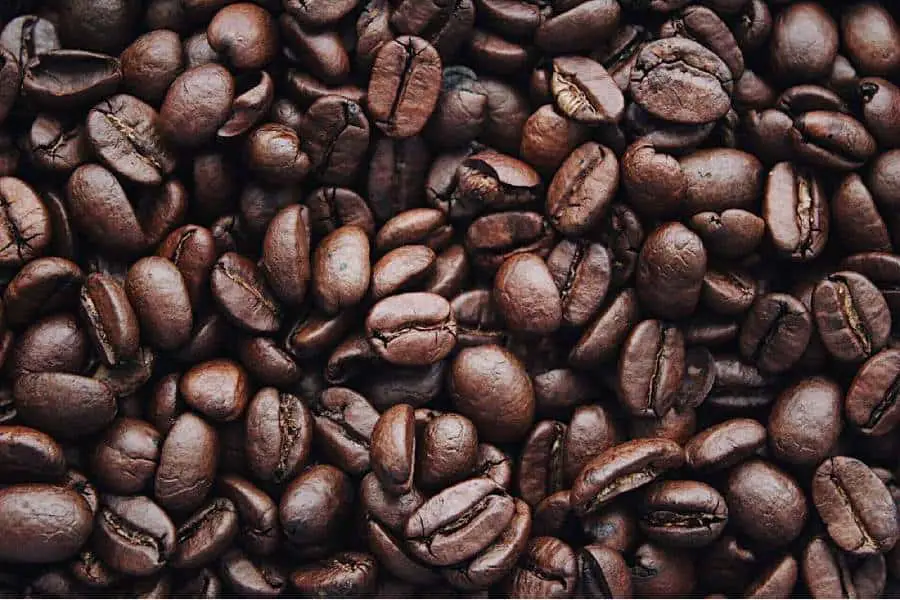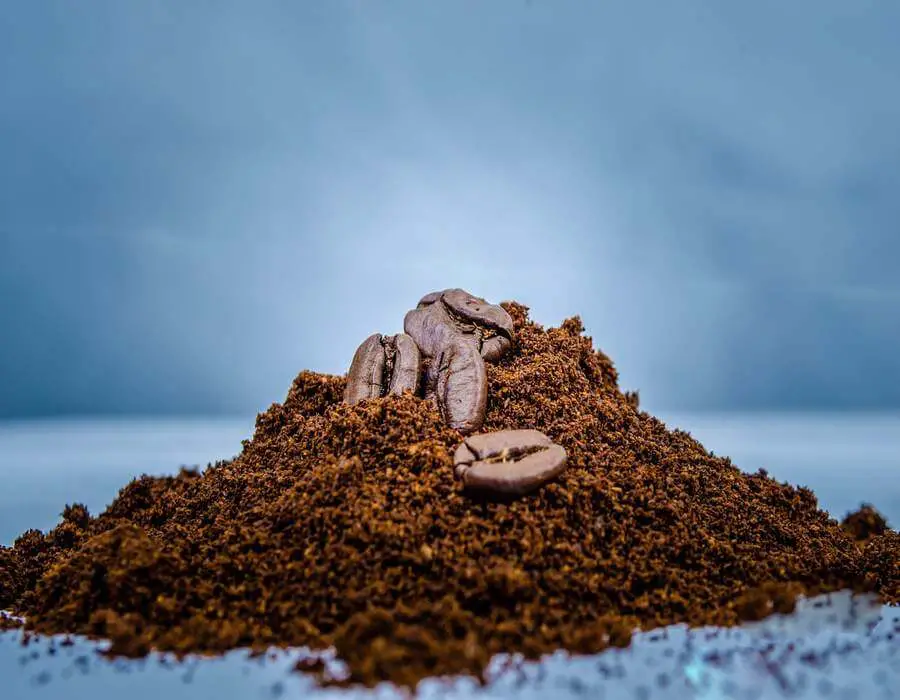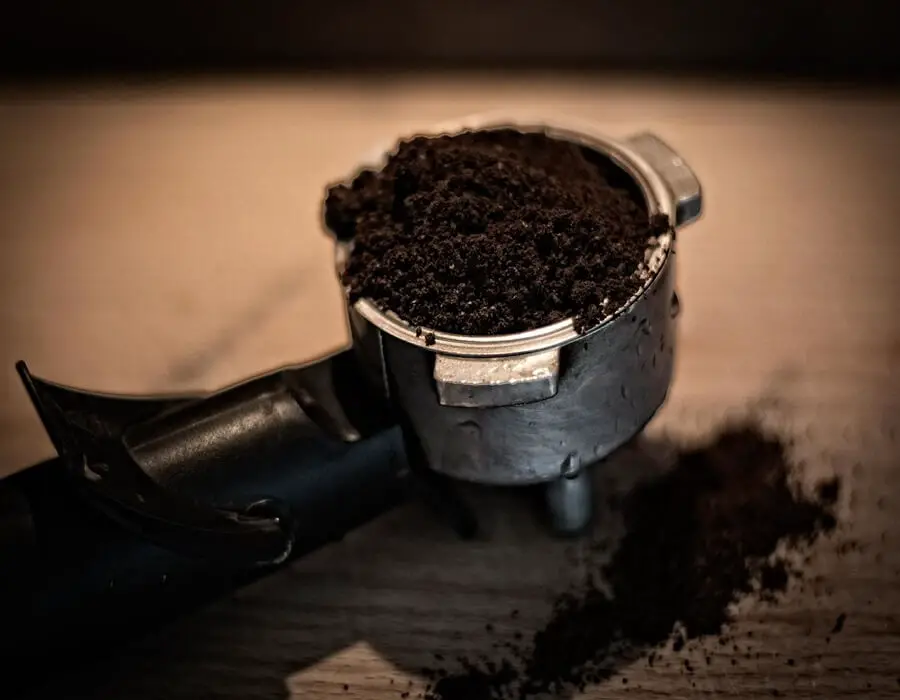
How many times have you discarded old coffee for fear that it may make you sick? We have all been guilty of either leaving brewed coffee on the table or in the fridge for too long. How about finding some old coffee beans in the pantry that are long past their best-by date?
This article discusses whether coffee actually expires and what happens if you drink old coffee.
Can You Drink Expired Coffee?
Yes, you can drink expired coffee without getting sick unless it has molds or spoiled additives such as milk. However, the realization that you have drunk expired coffee might cause nausea and disgust. Expired coffee is bitter or rancid as it has lost nearly all its aroma and flavors.
Expired coffee that is moldy can cause respiratory issues in people with respiratory allergies.
See how moldy coffee can affect people with respiratory problems.
Brewing coffee with old coffee beans or stale grounds cannot make you sick unless the beans or grounds have molds due to poor storage. However, your cuppa will be dull and not worth the trouble.
Similarly, old black coffee or a dead espresso on its own will not hurt you. However, drinking a large amount of coffee that has spoiled add-ons such as cream or milk can cause health issues such as bloating, diarrhea, and stomach pain. These complications arise from expired additives.
If you were to serve a cup of expired coffee to someone (not a good thing, right) and then you inform that person that the coffee was expired. Well, the person might literally go into panic and nauseousness. It has nothing to do with the coffee: just a mental fright that he has consumed coffee that is past its shelflife.
Does Coffee Expire?
Yes, coffee – whether it’s whole beans, grounds, or brewed coffee – becomes old and goes bad at some point. However, unless the old coffee is contaminated with fungi and bacteria due to poor storage, old coffee is unlikely to make you sick.
Read this article about how long espresso shots last
The shelf life of coffee depends on various factors such as the physical state of the coffee – green beans, roasted, pre-ground, or brewed coffee – and how you are storing the coffee. Another factor, especially for brewed coffee, is whether the coffee has add-ons.
Whether coffee is opened or unopened it eventually goes bad. Every time you open the bag or container in which you are storing your coffee, some air enters the container and exposes your coffee to oxidation. Generally, opened coffee has a shorter shelf life than unopened coffee.

How Does Coffee Expire?
To better understand how coffee expires let’s focus on roasted beans.
When roasting coffee beans, the heat causes the beans to shed moisture and produce gases such as carbon dioxide (CO2) as well as delectable aromas and oils. The structure of the beans changes such that the beans are lighter and have bigger pores. CO2 gas and volatile compounds are trapped inside the beans.
Roasted beans are more unstable than green beans; they are more sensitive to light, oxygen, temperature, moisture, and time. The beans are very hygroscopic and porous. Roasted coffee beans are continuously releasing the trapped CO2 and volatile compounds in a process that is known as de-gassing/outgassing.
Roasted beans commence off-gassing immediately after roasting: off-gassing peaks within the first 24 hours of roasting with about 40 percent of the trapped gases escaping. Rapid degassing continues up to around 5 to 10 days of roasting after which de-gassing stabilizes and the beans are at a prime state to make coffee.
Brewing coffee with beans prior to their priming leads to inconsistent coffee and a bloated crema as CO2 continues to escape rapidly during brewing thus interfering with the extraction. The bloated crema dissipates rapidly after brewing.
How Grinding Coffee Affects its Shelf Life
When you grind the beans, you increase the surface area of the coffee and release a lot of the trapped CO2, flavors, and aromas. The increase in surface area shoots the instability level of coffee grinds upwards. Consequently, pre-ground coffee has a much shorter shelf life than whole beans.
How Oxidation Degrades Coffee
When coffee beans are exposed to oxygen, some of the aroma and flavor-forming compounds react with the oxygen and rapidly escape from the beans. Moreover, the oxidation forms new compounds thus deteriorating the aroma and freshness of the beans.
How Temperature Affects Coffee
The temperature at which you store your coffee will determine the rate at which the coffee reacts with other elements such as oxygen. Higher temperatures speed up oxidation and degassing. A study has shown that coffee beans oxidize rapidly at temperatures above 30 degrees Celcius and very slow at freezing temperatures below -20 degrees Celcius.
How Moisture Degrades Coffee
Roasted coffee beans are highly hygroscopic due to the loss of moisture during roasting. Exposure to moisture adds oxygen molecules to the coffee and results in the deterioration of some of the compounds that give fresh coffee its flavor and aroma. Exposing coffee to moisture can also lead to moldy coffee: a musty smell and taste.
The Effect of Light on Coffee
Exposing your coffee beans to direct light can damage the coffee oils and lead to dry beans. Direct UV light can also increase the temperature thus hastening degassing and oxidation.
How Coffee Quality Deteriorates Over Time
Proper storage of your coffee slows down the rate of chemical reactions and physical deterioration of the coffee. However, as coffee ages, it continues to gradually release the aromas and CO2 over time until such time that its freshness and value are fully diminished.
The storage methods only prolong the shelf life of coffee but with time, the coffee beans will degas to a level where they can only make bad coffee with no aroma or flavor.
How Long Does Coffee Take to Expire
| Type Of Coffee | Cabinet | Freezer | Refrigerator |
|---|---|---|---|
| Green beans | 1 year | Up to 1 year | – |
| Roasted beans | 6 to 9 months | 2.5 years | – |
| Coffee grounds | 2 to 5 months | Up to 2 years | – |
| Instant coffee | 2 to 20 years | Indeterminate | – |
| Cold-brew | About 14-18 hours | – | 7-10 days |
| Hot-brew black coffee | Up to 12 hours | – | 3-4 days |
How to Tell if Coffee is Rancid
The easiest way to tell whether coffee is rancid is by smelling it. Rancid coffee has a mildewy, flat, and ashtray-like smell.
For brewed coffee including cold brew, as the drink becomes rancid, it loses its aroma and flavors and the resulting stale coffee is bland and can have some woody notes.
For coffee beans and ground coffee, there are three ways to tell if they are stale
- Observing the physical attributes (color, dryness, and smell) of the beans/grounds
- Observing the brewing process
- Taste and aroma of the brewed coffee

Generally, stale coffee beans will be too dry and lacking in oils. Old grounds also have a dry surface and feel. Stale coffee beans/grounds due to prolonged exposure to moisture are likely to have observable mildew and a musty smell that can cause respiratory problems.
It is easier to detect rancid coffee by observation when brewing with a pour-over coffee maker or pulling an espresso as opposed to drip coffee makers.
Pulling an espresso with expired beans or grounds results in channeling due to inconsistent grounds. Also, the crema is likely to be weak or completely nonexistent due to excessive loss of CO2. The espresso has a woody aroma and flavor as some of the brighter compounds have disappeared during oxidation.
Expired grounds on pour-over coffee have less bloom and fast extraction time. The coffee is empty in both flavor and aroma.
How to Store Coffee Beans to Extend their Shelf-life
Whether you are storing your coffee beans in the pantry or freezer, your goal is to keep them away from heat, air, moisture, and direct light. Ensure that your beans are not stale before storage.
For beans whose packaging is not opened, you can put the whole bag or container in the pantry or freezer. Ensure that the bag is water-resistant before freezing.
After opening the packaging, press the bag to expel the air and reseal it. Place the bag in the pantry.
How To Store Coffee Beans in a Freezer
You can safely store coffee beans in a freezer so long as you expel all the air from the bag that you are using for storage. Removing all the air ensures that there is no condensation inside the bag when u put freeze the coffee beans.
The freezer temperature should be as low as possible with the best results arising from temperatures that are below -20 degrees Celcius.
We recommend that when freezing your coffee beans, portion them in small quantities of about 250-350 grams in airtight zipper bags. Place the portioned bags inside a closed container and store them in the back of the freezer.
When brewing coffee with frozen beans retrieve one pack at a time and keep it in a cabinet until it’s finished. Opening a bag and returning it to the freezer is undesirable as it increases the chances of condensation inside the bag.
Avoid freezing freshly roasted coffee beans immediately after roasting to allow for adequate degassing.
How to Brew Coffee With Frozen Coffee Beans
There are two ways when grinding frozen coffee beans to brew your coffee:
- Grind the frozen coffee beans without defrosting and brew immediately. Grinding the frozen beans yields a more consistent grind size that is ideal for pulling espresso. Grinding also heats up the beans and offsets the cold temperature without degrading their freshness. The aim is to grind the beans straight from the freezer before condensation sets in
- Thoroughly defrost (preferably overnight) the coffee beans before removing them from the storage bag to avoid condensation around the beans that would rapidly degrade the beans. For this method, the aim is to allow for complete defrosting before opening the storage bag or container.
Read about whether you can freeze ground coffee.
Final Thoughts About Drinking Expired Coffee
Although drinking expired or old coffee is unlikely to make you sick, it lacks the flavors and aromas that we desire in coffee. Therefore, we recommend that you avoid drinking old coffee.
Always aim to use your coffee beans at a date that is as near the roasting date as possible; of course, after factoring in the 10-day priming period. Buying the right quantity of coffee beans can minimize the chances of staling.
